Table of Contents
Key Takeaways
- B-Vitamins and multivitamins are crucial for brain health and neurotransmitter synthesis.
- Acetylcholine’s role in ADHD can be supported with nootropics like ALCAR and CDP-Choline.
- Nootropics like Ashwagandha and Bacopa Monnieri help repair damaged neuroreceptors in ADHD.
- Noopept enhances cognition, memory, and provides neuroprotection.
- Combining specific nootropics with essential vitamins can optimize brain function for managing ADHD symptoms.
Depending on the severity of your ADHD symptoms, you may be able to use nootropics as an alternative to prescription stimulants like Adderall, Ritalin, Vyvanse and their variations.
I experimented for a year by using nootropics in place of the 20 mg of Ritalin I had been using 3-times a day for several years. And for the most part, I was successful in taming my Adult ADD symptoms.
Adult ADD Nootropic Stack
The ADD/ADHD stack I use includes:
- Mind Lab Pro
- Performance Lab® Energy – twice per day
- CDP-Choline – twice per day
- ALCAR – 750 mg 1-time per day
- L-Tyrosine – 500 mg 3-times per day
- Sulbutiamine – 400 mg twice per day
- Aniracetam – 750 mg twice per day
- Vinpocetine – 10 mg 3-times per day
- Performance Lab® Omega-3 – 3 GelCaps per day
- 1 tablespoon unrefined Coconut Oil or MCT Oil– 3-times per day
- Performance Lab® NutriGenesis Multi – 4 caps per day
During my one-year stimulant holiday, the ingredients in Mind Lab Pro along with L-Tyrosine, CDP-Choline, and ALCAR (included in Performance Lab Energy) kept my dopamine, norepinephrine, and acetylcholine levels high enough to maintain focus, motivation and improve my memory. Vinpocetine kept my brain blood flow at optimal levels. And Aniracetam and Sulbutiamine improved my mood.
But after a year I decided to go back to using 20 mg of Ritalin twice per day. Because my workload had me writing 10 hours per day. And maintaining working relationships with 2 or 3 clients at once.
By adding Ritalin back to my stack I was able to reduce the time it would take to complete a project from 3 days to 1 ½ days. Proof to me that my overall brain health couldn’t make it with nootropics alone.
The beauty of continuing to use L-Tyrosine, CDP-Choline, and ALCAR even after I started using Ritalin again was that I avoided the stimulant “crash” that is so common late afternoon when using stimulants. And I was able to reduce the original 20 mg Ritalin 3-times per day down to only twice per day.
And I have not experienced building up tolerance to Ritalin that is so common when using stimulants to treat ADD or ADHD.
Your situation may be different, or ADHD symptoms not as severe. Only you can decide if nootropics can replace ADHD meds. The stack I describe on this page is designed to be used with or without stimulant meds.
Whether you use this stack with meds or without, you’ll need to discover for yourself what dosages of each nootropic are ideal for you. Because the amounts that work for me may not work as well for you. You may need less NALT and/or ALCAR.
Experimenting is the key to success with nootropics. And knowing as much as you can about what’s going on in your brain that needs to be fixed. But after many years of recommending this ADHD nootropic stack to people just like us around the world, we know this works.
The pre-made nootropic stacks mentioned in this post include:
Prescription “Smart Drugs” vs. Nootropics for ADHD
This post is in response to many emails and questions I’ve been getting about how to treat Attention Deficit/Hyperactivity Disorder (ADHD) or Attention Deficit Disorder (ADD) with nootropics.
So if you are dealing with ADHD, hopefully this post will help. Especially if you are using stimulants like Ritalin, Adderall, Vyvanse, Focalin, or any of the other stimulant prescribed for ADD/ADHD. Or you are trying to deal with ADHD naturally by avoiding prescription stimulants.
This information can also help if you are a student or executive who uses prescription “smart drugs” like Adderall or Modafinil to boost productivity.
Here we’ll dig into the causes of ADHD or ADD in your brain. Symptoms associated with ADHD. And what you can do using nootropics, or nootropics stacked with stimulants to correct ADHD symptoms.
I’ll also include ways to potentiate the effectiveness of prescription stimulants with nootropics so they work better.
If you’ve never ‘officially’ been diagnosed with ADHD, but some of this resonates with you, you could be ADHD or ADD. And this may point you to some answers.
I’ve been ADD all my life. (ADD is ADHD without the hyperactivity). But it wasn’t until about 16 years ago, that a very wise psychiatrist identified what was going on. And why I had been struggling with focus and other problems with behavior. That no amount of self-help books on focus and management could ever correct.
Ritalin turned the lights on for me. And completely changed my life for the better. This was the seed that sprouted my interest in neuroscience and nootropics. And ultimately launching Nootropics Expert®
What is ADHD & ADD?
Attention Deficit/Hyperactivity Disorder (ADHD) or Attention Deficit Disorder (ADD) are associated with attention and executive function in your brain.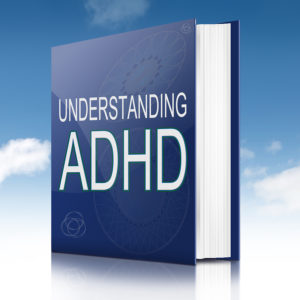
Your prefrontal cortex directs behavior, thought and feeling which are all associated with working memory. This fundamental cognitive function is what most “healthy” people take for granted, are what make up executive function.
This executive function and working memory give you the ability to:
- Regulate your attention
- Inhibit inappropriate behavior and thought
- Monitor your actions
- Plan and organize your future
If you can’t focus on the task at hand, blurt things out at inappropriate times, have little control over your emotions or actions, and can’t seem to stick to that careful set of goals you wrote down, you may be ADHD.
The Role of Norepinephrine and Dopamine in ADHD
Norepinephrine and dopamine are the primary neurotransmitters involved in ADHD because they play an essential role in attention and thinking.[i]
The “inattentive” type of ADHD is related to issues with the norepinephrine, and the “hyperactive and impulsive” type of ADHD is linked to dopamine dysfunction.
These two neurotransmitters work in concert to maintain alertness, increase focus, sustain thought, effort, and motivation. The only difference between the two is the presence of a hydroxyl group. And dopamine is the precursor to norepinephrine synthesis in your brain.[ii]
Much of what we read about ADHD focuses on dopamine’s function in your brain. But norepinephrine (NE) plays a critical role in activating your reaction to events. And how you respond to the event.[iii] NE is essential for collecting information coming in through your senses. And then modulating your brain’s response.
Any disruption in this NE system can result in ADHD, Post Traumatic Stress Disorder (PTSD), sleep disorders and more.[iv]
For example, NE working with postsynaptic α2-adrenoceptors (α2-AR) in your brain play an essential role in helping you focus and eliminate distractions when you’re paying attention to something.[v]
This is just one example of what goes wrong with ADHD brain function. My point in bringing this all up is not to overwhelm you with neuroscience.
But to make clear that simply suggesting too much or too little of a single neurotransmitter like dopamine cannot explain the complexity of ADHD.
So using a nootropic like L-Tyrosine to amp up dopamine in your brain is often not enough to take care of ADHD symptoms. Or using Adderall with someone who has a problem with alpha2-receptor binding with norepinephrine may not get much benefit.
This is the reason that experimenting with various stimulants and/or nootropics is often the only way to find a long-term solution to keeping ADHD under control. And why some respond better to a drug like Ritalin and not as well to Adderall. Or vice versa.[vi]
And recent research shows serotonin and acetylcholine are involved too. Mostly the “hyperactivity” part of ADHD which includes movement, inattention, and impulsivity.[vii]
Smart Drugs Used to Treat ADHD Symptoms
If you are truly and clinically ADHD or ADD, it is unlikely that optimizing your diet, getting plenty of sleep, using nootropics, and exercising regularly will get the symptoms of ADHD under control.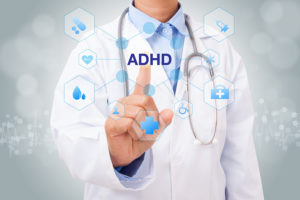
The most severe forms of ADHD often benefit from using prescription medication. Otherwise known as “smart drugs” in some circles, these meds are typically amphetamines or methylphenidate.
The amphetamine-class of ADHD prescription drugs includes Adderall (75% dextroamphetamine salts and 25% levoamphetamine salts), Dextroamphetamine, and Vyvanse (Lisdexamfetamine).
The methylphenidate-class of ADHD medications includes methylphenidate (Ritalin) and its variants like Concerta, and Focalin.
Adderall and Ritalin both work with dopamine and norepinephrine in your brain. But through different mechanisms of action.
Ritalin is a pure uptake inhibitor of dopamine and norepinephrine without any other presynaptic activity.[viii] Adderall on the other hand, has additional presynaptic activity, releasing dopamine and norepinephrine from presynaptic neurons.
The idea for the last 60 years or so, has been if we could boost dopamine and norepinephrine in the brain, ADHD symptoms would go away. As long as we’re taking the medication.
Why Prescription Attention Deficit Hyperactivity Disorder Meds Often Don’t Work
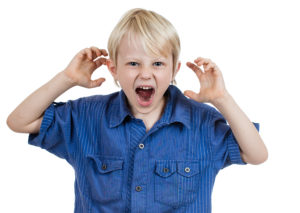 In an ideal world, taking one pill 2 or 3 times a day to treat ADHD would put your life back on track. And help you function like a ‘normal’ person.
In an ideal world, taking one pill 2 or 3 times a day to treat ADHD would put your life back on track. And help you function like a ‘normal’ person.
But real-world results often don’t work out as well as theory. For several reasons. For example, what if there’s not enough dopamine or norepinephrine in your brain in the first place? Then stimulants will not work as well as planned because they haven’t the neurotransmitters in place to work with.
You could also have problems with not enough or damaged neuroreceptors. Natural aging processes can slow blood flow or inhibit the production of neurotransmitters. A lack of acetylcholine could prevent your neurotransmitters from doing what they were designed to do.
This is where nootropics can help save the day in treating the symptoms of ADHD.
Optimizing Dopamine & Norepinephrine
 One of main culprits contributing to ADHD symptoms is a lack of dopamine (DA) and norepinephrine (NE) in your brain. Or your brain is not using the available DA and NE effectively.
One of main culprits contributing to ADHD symptoms is a lack of dopamine (DA) and norepinephrine (NE) in your brain. Or your brain is not using the available DA and NE effectively.
Stimulants like Adderall and Ritalin work to boost levels and use of these two critical neurotransmitters.
Production of dopamine and norepinephrine in your body and brain follows this metabolic pathway:
Phenylalanine → Tyrosine → L-DOPA → Dopamine → Norepinephrine
Dopamine is converted to norepinephrine by the enzyme dopamine β-monooxygenase, with O2 and ascorbic acid (Vitamin C) as cofactors.
Norepinephrine can be further converted into epinephrine by the enzyme phenylethanolamine N-methyltransferase with SAM-e as cofactor.
Nootropics to boost dopamine and norepinephrine include:
- L-Tyrosine – L-Tyrosine is the precursor to the synthesis of dopamine in your brain. L-Tyrosine enhances working memory, executive function, creative flow states, reduces stress, improves mood and is anti-anxiety.Suggested dosage of L-Tyrosine or NALT for ADHD is 350- 500 mg twice per day. I successfully stack 500 mg of NALT or L-Tyrosine 3-times per day. Once each time I dose with Ritalin, and a last dose mid-afternoon to prevent a stimulant crash later in the day.
- Mucuna Pruriens (L-Dopa) – Mucuna works as an antioxidant and heavy metal chelator, improves memory & cognition, reduces depression and boosts libido.L-Dopa is also the direct precursor to dopamine. Suggested dosage of Mucuna Pruriens is 250 – 500 mg per day. But if you’re just starting out with nootropics, I highly recommend using L-Tyrosine or NALT instead of Mucuna Pruriens. Because Mucuna can be more difficult to dose since it directly stimulates the production of dopamine. L-Tyrosine and NALT are more ‘forgiving’ when it comes to dosage.
- N-Acetyl L-Cysteine (NAC) – NAC is an amino acid that regulates the amount of glutamate and dopamine in your brain.NAC can be used to address the symptoms of ADHD. And may even help eliminate some of the negative side effects associated with prescription ADHD stimulants. Suggested dosage of NAC is 600 mg 3-times per day.
- Phosphatidylserine (PS) – PS can help improve alertness, attention, cognition, memory, recall and mood, and lower anxiety. All issues associated with ADHD.Phosphatidylserine is a phospholipid component of the membrane encasing every one of your brain cells. PS helps maintain the fluidity and permeability of brain cells. Improving the flow of dopamine and acetylcholine. Suggested dosage of PS is 100 mg 3-times per day.
- Pine Bark Extract – Pine Bark extract helps prevent decreases in dopamine and norepinephrine. And the glutathione (GSH) and GSH-disulphide reductase (GSSG-R) ratio. Neurotransmitter problems which contribute to hyperactivity in ADHD.Pine Bark extract also helps boost blood flow in the brain by increasing nitric oxide which helps dilate blood vessels. And it helps reduce oxidative stress, membrane damage, DNA damage, inflammation, and glycation.I’ve found one of the most potent forms of Pine Bark extract comes in both Mind Lab Pro® and Performance Lab® Mind.
A word of caution here in boosting the catecholamines dopamine and norepinephrine. Too much of either is not a good thing. In fact, excess levels of either will throw your neurotransmitter levels out of balance. And can cause anxiety, insomnia and panic attacks.
Taming Hyperactivity with Nootropic Supplements
The “H” in ADHD stands for hyperactivity. Boosting levels of dopamine and norepinephrine can help balance out hyperactivity. And help calm and focus your mind. But often simply boosting or balancing these neurotransmitters is not enough.
Recent studies show that serotonin and dopamine interaction also play a role in ADHD.[ix] Serotonin is involved in the uptake, synthesis and breakdown of dopamine in your brain. Problems with serotonin seem to contribute to behavior and impulse control.
Much more research needs to be done in this area of ADHD. But we can help control and balance serotonin with nootropics.
- 5-HTP – This amino acid is synthesized from the amino acid tryptophan. And 5-HTP is the immediate precursor to serotonin in your brain.5-HTP can help relieve anxiety and depression, fibromyalgia, insomnia, migraines and likely the hyperactivity, depression and anxiety associated with ADHD. Suggested dosage of 5-HTP is 50 mg up to 3-times per day. Please see my dosage notes and warnings before you try supplementing with 5-HTP.
- Ginseng – Ginseng helps calm anxiety, and boost attention, concentration and memory. Ginseng provides neuro-protective effects on the dopaminergic-pathway which can help with ADHD. And ginseng is a serotonin and norepinephrine reuptake inhibitor (SNRI).Suggested dosage of Ginseng is 100 – 400 mg per day.
- L-Theanine – L-Theanine commonly found in green tea helps boost alpha and theta brain waves, is anti-anxiety, boosts cognition and memory and reduces insomnia.L-Theanine also helps boost GABA, serotonin and dopamine levels in your brain. Suggested dosage of L-Theanine is 150 mg 2 – 3-times per day.
- Rhodiola Rosea – Rhodiola Rosea helps improve alertness, energy, memory and mood, is anti-anxiety and antidepressant, reduces fatigue and boosts memory and concentration.Rhodiola influences serotonin and norepinephrine levels in your brain. Suggested dosage of Rhodiola Rosea extract is 150 – 200 mg per day.
- Saffron – Saffron acts as a dopamine and norepinephrine reuptake inhibitor. Similar to how Ritalin works. A randomized double-blind study was conducted with 54 children 6-17 years old who were given 20 – 30 mg methylphenidate or 20 – 30 mg Saffron per day for 6 weeks. At the end of the study researchers concluded, “Short-term therapy with a saffron capsule showed the same efficacy compared with methylphenidate.”Suggested dosage of Saffron is 30 mg per day.
- Vitamin B6 (Pyridoxine) – Vitamin B6 helps your brain make serotonin, norepinephrine and melatonin. Suggested dosage of B6 is up to 100 mg per day.
- Vitamin B9 (Folate) – Folate (NOT folic acid) as a nootropic helps your brain make dopamine, epinephrine, norepinephrine and serotonin. Suggested dosage of Folate is 400 mcg per day.
- Vitamin B12 (methylcobalamin) – is a cofactor in the synthesis of neurotransmitters acetylcholine, dopamine, GABA, norepinephrine, and serotonin. Suggest dosage of B12 is 100 mcg per day.
B-Vitamins are Critical in Controlling ADHD
Take note that several of the B-Vitamin group are involved in the production of the neurotransmitters involved in ADHD. I recommend adding a good B-Vitamin Complex that include methylfolate (not folic acid) and methylcobalamin (not cyanocobalamin) to your stack. Both in a pure nootropic stack as well as when using any of the ADHD prescription stimulants.
But it’s not only the B-Vitamins that are required for a healthy, fully functioning brain. We also need each of the 13 vitamins and 13 minerals needed for everything from blood flow, neurotransmitter synthesis and release, brain signaling, and neuroprotection.
I’ve found the easiest way to make sure my ADD brain gets all the vitamins and minerals it needs every day is to also use a multivitamin/mineral supplement.
The best I’ve found so far is the multivitamin called Performance Lab® NutriGenesis Multi. It’s better than the “raw-food” multi I was using for years. And makes a difference I can actually feel.
But please note that this multi is in addition to a B-Vitamin Complex because the ADHD brain needs more of these critical nutrients than what is normally in any good multivitamin.
The Role of Acetylcholine in ADHD
Researchers at Vanderbilt University Medical Center discovered that there are three types of ADHD.
We’ve already covered the “inattentive” type that is related to issues with the norepinephrine transporter gene. And the link to the dopamine transporter gene in the “hyperactive and impulsive” type.
But the research team now report that a variation in the choline transporter gene is associated with a “combined” type of ADHD. Symptoms include both inattention and hyperactivity/impulsivity.
Choline is required to synthesize acetylcholine (ACh) which is needed for memory, motor-control, focus, learning, concentration, and cognition.
If you have the “combined” type of ADHD it’s likely due to a mutation in this choline transporter gene variation.
Nootropics to boost acetylcholine include:
- ALCAR (Acetyl-L-Carnitine) – ALCAR donates a methyl group in the presence of Coenzyme-A for the synthesis of acetylcholine. And it’s also a shuttle transport for fatty acids through brain cell membranes. It shuttles fatty acids into mitochondria for ATP synthesis, and shuttles toxic byproducts out.
Research from the Linus Pauling Institute shows ALCAR will restore mitochondrial function, replenish age-related changes to mitochondrial structure, and helps replenish acetylcholine levels to your brain and body.
And other studies show that ALCAR stimulates nerve growth factor. Helping support survival and growth of neurons. Which is particularly important for the ADHD brain and especially when using prescription stimulants that may be tough on neurons.
- Alpha Lipoic Acid (R-LA) – Alpha Lipoic Acid increases acetylcholine production by activation of choline acetyltransferase and increases glucose uptake. This process supplies more Acetyl-CoA for the production of acetylcholine.
Alpha Lipoic Acid enhances insulin-stimulated glucose transport and metabolism for better brain cell performance. And R-Lipoic Acid provides strong antioxidant support because it helps regenerate and recycle existing antioxidants in your brain including Vitamins C & E, glutathione, and CoQ10.
I’ve since switched the ALCAR supplement in my ADD stack to Performance Lab® Energy because this pre-formulated energy stack contains my preferred dose of ALCAR. But note that I also take another 500 mg of ALCAR with L-Tyrosine late afternoon to prevent a stimulant crash.
Performance Lab® Energy also contains Alpha Lipoic Acid and ALCAR which helps my ADD brain produce acetylcholine.
- CDP-Choline (Citicoline) – Citicoline helps synthesize phosphatidylcholine (PC), a major phospholipid found in brain cell membranes. And provides choline for the synthesis of acetylcholine while providing antioxidant activity.
The CDP-Choline (Citicoline) in my ADD stack is supplied by Mind Lab Pro® which is the base of my nootropic stack.
But a suitable alternative to MLP is Performance Lab® Mind which contains the branded form of citicoline called Cognizin®.
Performance Lab® Mind and Mind Lab Pro® also contain L-Tyrosine, Phosphatidylserine (PS), and Maritime Pine Bark extract.
Repairing Neuroreceptors Needed to Control ADHD
One of the issues with neurotransmitters and ADHD are damaged or non-existent receptors. Dopamine, norepinephrine and serotonin have less receptors to bind to for cognition and mood control.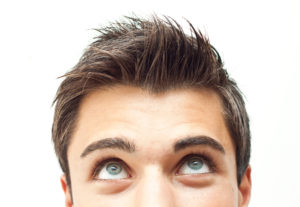
Once again, nootropics come to the rescue in helping control ADHD. You can add one of these nootropics to your stack to help boost neuron and receptor health.
- Ashwagandha – This adaptogen, Ashwagandha helps reduce anxiety and depression. And helps reconstruct axons, dendrites and synapses involved in neurotransmitter signaling in your brain.Suggested dosage of Ashwagandha extract is 250 – 500 mg per day.
- Bacopa Monnieri – Bacopa helps boost memory and cognition, improves mood, and reduces stress. This adaptogen affects brain levels of acetylcholine needed for neurotransmitter signaling.And the two active components of Bacopa Monnieri called bacosides A and B not only improves signaling of electrical impulses between neurons in your brain. Bacosides also help rebuild damaged neurons. Suggested dosage of Bacopa is up to 450 mg per day.
- Lion’s Mane – Lion’s Mane Mushroom is known for stimulating Nerve Growth Factor, improving cognition and memory, and relieving depression.Lion’s Mane stimulates the repair and creation of neurons in your brain. Neurons needed for dopamine and norepinephrine to control ADHD. Suggested dosage of Lion’s Mane Mushroom starts at 500 mg per day. Note: that there’s an effective 500 mg dose of Lion’s Mane full-spectrum fruiting body in each dose of Mind Lab Pro®
- Noopept – Noopept helps boost cognition, memory, learning, perception, logical thinking and mood. Noopept increases Nerve Growth Factor, and Brain-Derived Neurotrophic Factor (BDNF) critical for neuroplasticity and Long-Term Potentiation critical for long-term memory.Noopept also prevents the release of excess glutamate in your brain. Providing potent neuroprotection for neurons and reducing damage. Suggested dosage of Noopept is 10 – 30 mg per day.
Please note that I haven’t linked through to supporting clinical studies for each of the nootropics I listed above. But you can click through to my full review of each nootropic for extensive research supporting each supplement.
Nootropics for Kids
ADHD and ADD is most often diagnosed in children. The latest statistics (2011) from the CDC in the USA shows about 11% of children 4 – 17 years of age (6.4 million) have been diagnosed ADHD.[x] And that’s just for the USA.
Although ADHD is usually first diagnosed in children, it often lasts into adulthood. I sometime wonder how my life would have been different if I had been declared ADD when I was a kid.
But it wasn’t until the late 1960’s that the American Psychiatric Association formally recognized ADHD as a mental health disorder. I wasn’t declared Adult ADD until much later.
The thing is many parents are wary about putting their children on powerful, prescription ADHD meds. Kids’ brains continue to develop until your early 20’s. So is it a problem messing with brain chemistry at such a young age? Only time will tell and if the benefits outweigh any potential risk.
Hence the reason why parents are looking for ‘natural’ alternatives like nootropics to treat ADHD in children. But are nootropic supplements any safer than prescription stimulants?
Common sense tells me that using L-Tyrosine could be safer than Ritalin for boosting dopamine. And Rhodiola Rosea could be safer than stimulants or antidepressants for taming hyperactivity.
But many children with ADHD, natural supplements may not be enough. I’m not a doctor, and don’t even play one on TV. I’m an ordinary biohacker who has learned as much as I can to help myself. And fix my own cognitive performance issues. Including Adult ADD.
So I highly recommend you find and work with an open-minded psychiatrist with your child. You may be pleasantly surprised to find you may be able to reduce or eliminate prescription ADHD meds altogether to enhance cognitive functions. And maybe not. But the long-term health of your child could be worth the time investment to find out.
In Summary
I’ve been wanting to write this post since I started Nootropics Expert®. If you are ADHD or ADD, I hope you found this useful. And I’d appreciate your feedback, and share your experience with treating ADHD with nootropics in the comments section of this post below.
Please share this post with anyone you think would benefit. Including discussions about nootropics for ADHD on reddit or Longecity.
One final note. Neurotransmitter balance is key to taming ADHD. I strongly caution you to take it slow if you’re just starting out with nootropics. Carefully read each of the extended articles in the List of Nootropics you are considering trying.
You need to be careful about side effects, prescription drug interactions, dosages and how your body reacts to each supplement to ensure healthy brain function.
But I’m confident that with careful planning and a long-term commitment, your cognitive enhancement will be just as successful as I have been in living and thriving with my Adult ADD.


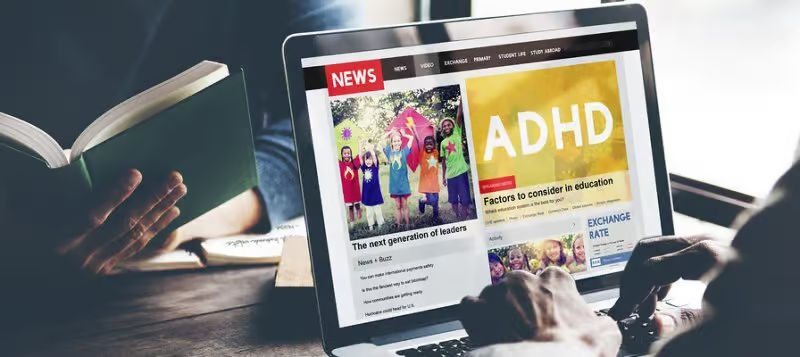





Join The Discussion - 792 comments
Vegard bø
January 3, 2022
Hello,
I was wondering if there is any reason why one would choose l-phenylalanine over l-tyrosine? For example Bio availability etc.
David Tomen
January 4, 2022
Only that supplementing with L-Phenylalanine is 3 steps away from producing dopamine and L-Tyrosine is 2 steps away from producing dopamine. One may work better than that other depending on the person and how your system uses either supplement.
Manjeet Dagar
January 1, 2022
Hi David,
Thank you so much for creating this one stop information solution for nootropics and specially ADHD stack page. This has been very helpful and informative.
I’m 29, diagnosed with ADD last month. It’s severe.I recently started on methyl-phenidate 20 mg one dose after breakfast. It lasts for 1-2 hours only and gives an evening crash which sabotages my 3-4 hours and i can’t get anything done.
First I’m trying to set the base right with daily exercise, low carb diet(please provide your opinion on this), sleep.
I am planning to increase the dosage to 40mg after breakfast. As a beginner which of the nootropics and herbs I should start experimenting with?
Thanks,
Manjeet
David Tomen
January 2, 2022
Manjeet, most of the list above in the yellow box. To support the use the methylphenidate and avoid the crash: Mind Lab Pro, L-Tyrosine, Alpha GPC, ALCAR, DHA, and a bioactive B-Complex.
Tyrosine, Alpha GPC, and ALCAR are used 3-times per day with the last dose around 4 PM which helps you avoid the stimulant crash.
Manjeet Dagar
January 10, 2022
Thanks for confirmation David. Mind Lab is not available in India, any alternative?
Also can you suggest what to look for in b-complex because all the brand’s available in India are not bio active.
David Tomen
January 11, 2022
Manjeeet, you can quickly judge a B-Complex and a multivitamin by checking the type of Vitamin B9 and B12 they use in the supplement.
For example, Vitamin B9 needs to be folate or methylfolate instead of folic acid which is synthetic. And Vitamin B12 must be methylcobalamin which is natural instead of cyanocobalamin which is synthetic and the “cyano” part stands for cyanide. Which you do not want in your body.
There is not direct alternative for Mind Lab Pro. If you cannot get it in India I suggest you look at the Mind Lab Pro label (https://www.mindlabpro.com/) and put together a stack of individual supplements which mimic what is in Mind Lab Pro.
amro
December 23, 2021
i tried tyrosine for now brand , then tried dr best brand . i noticed now brand worked much better , and dr best brand didn’t work like im taking nothing why some brand work and some of them not , my other question does mucuna will effect the dopamine receptors in the brain ? does mucuna healthy for long term use . because sometimes i noticed gain weight after i used mucuna
David Tomen
December 26, 2021
Amro, you asked an important question. Well-known brand names are not necessarily an indicator of quality product. The only way you can do a side-by-side comparison is to ask each manufacturer for a Certificate of Analysis for the batch of Tyrosine you used from their company. And see what the lab testing says about what is in their capsule.
Mucuna Pruriens is used as a nootropic because it contains L-DOPA which is a direct precursor to the synthesis of dopamine. So, it helps supply the dopamine needed to connect to dopamine receptors. It does not directly affect dopamine receptors.
L-Tyrosine is a better option for increasing dopamine in my opinion. It is easier to dose, can be used long-term, and its effects are predictable if you are using a quality product. It is more difficult to predict how much L-DOPA you’ll get from Mucuna Pruriens. And L-DOPA is used primarily for treating Parkinson’s. If you are not dealing with Parkinson’s then I suggest sticking with a L-Tyrosine supplement that works for you.
Massimiliano
December 4, 2021
Hello David, i’ve just discovered your site and I wanna thank you for your will to share your knowledge with all us.
I SUSPECT to be affected by ADHD since the more I go deep into my research the more I recognize myself
after reading your site I was convinced to give nootropics a chance before taking any other chemical stymulant.
Based on my research(and before reading your article) I had formulated this stack:
– Mucuna P. 200 to 500 mg (4/5 days per week)
-L Tyrosine 1000 (2x)
-Rhodiola 50mg
-Serotonin-Dopamine Drops
-N. Acetil Cysteine 1000 to 2000 mg per day
After been reading your article I decided to take away Mucuna P.
and modify it as follow:
L- Tyrosine 500mg (3x)
N- Acetil Cysteine 600mg (3x)
Alcar 500mg (3x)
Alpha GPC 300mg (3x)
Rhodiola 150/200 mg per day
Tryptophan 500 to 1000 per day
I understood form your article that a B-complex8or at least high dosage of B6, B8 and B9) are essential but I find many difficulties to find a B-complex that have those you talk about in the same dosages.
I woudl go all in with it but because of my budget I cannot buy them all.
In your opinion which of them are absolutely essential to tame Adhd symptoms and experience long lasting results?
btw I read your article on hacking a flow state and as an artist myself I can witness that the states prior to the experience of flow are really terrifying and are the main obstacle to creation.
If you need some first hand witnesses for your creativity article I have plenty of them.
hope to have not bothered you with such a long mail and with my questions.
thank you in advance for your answer and time.
Best,
Max.
David Tomen
December 4, 2021
Max, this is the B-Complex you need: https://amzn.to/3IvUfor
The rest of your stack looks great for ADHD or ADD. The only “optional” supplement in there is Rhodiola Rosea which you can do without if necessary.
And take the L-Tryptophan before bed to keep serotonin levels up and in balance with the dopamine you are raising during your day.
Massimiliano Failla
December 4, 2021
Hey David,
thank you for your quick reply and the useful suggestion ( I found it in an on-line store that delivers its product to Italy).
The only reason I added Rhodiola wad you mentioned it in your flow article and I wanted to help my “creative” side.What do you think about it?
You also mentioned that Ashwagandha could help rebuilding brain cells connections.Did you think would be useful to take it , maybe in the future?
I hope you can give me an honest opinion on this product: https://www.myprotein.com/sports-nutrition/100-n-acetyl-l-tyrosine-powder/10575000.html
this brand has a more convenient price/quantity ratio and I found that the majority of the nootropics I need are available on their italian counterpart.
But as I said earlier, I will trust your opinion and will do my best to take the best ones.
Thanks again Dave!
David Tomen
December 5, 2021
Max, Rhodiola Rosea is a great supplement and works for a lot of people. Same with Ashwagandha. I suggest trying both but one-at-a-time and see if either provide the benefit you are lookin for.
That NAC powder looks pure to me. I know nothing about the company so do not know if they can be trusted. Search for customer reviews for that company and see what others say about them.
Massimiliano
March 5, 2022
Hello David,
A quick update about what I suspect being ADHD of the combined type.
After our last conversation In December I started the assumption of the stack I’ve mentioned before but I began to perceive the effects distinctly towards the end of January, the first weeks of February. I realized the substantial difference between the before and the after only now that, having slowly run out of products, everything I told you about in the past has reappeared on time.
I continue to take the most important ones:
– Tyrosine, Alcar and B-Complex in the recommended doses;
– Alpha GPG reduced to two intakes because I noticed the onset of annoying headaches after taking them in the afternoon. I tried to stop taking the latter in the last stack( mid afternoon) and the headaches disappeared.
– Tryptophan: two tablets instead of one.
In my case, taking NAC and PDS probably made a difference.
I noticed that PDS has disappeared from your stack as a standalone nootropic and Vinpocetine and Sulbutiamine have been added.
Are the latter necessary?
Can I exclude PDS as you did and introduce the latter?
A last question:
Should you buy them in powder or capsule form?
Most of the ones I use are powdered but I don’t have a precision scale so I had to trust the doses on the package and the measuring cups inside.
Thank you very much for what you do and for your irreplaceable help.
Massimiliano
David Tomen
March 5, 2022
Max, there is 100 mg Phosphatidylserine (PS) in Mind Lab Pro. But I’ve found I need another 100 mg PS 3-times per day. If you look at the “How does Phosphatidylserine feel” section of my PS review I think you’ll see why I added it. I need to update my list to reflect that.
Vinpocetine is to increase brain blood flow. And it does it amazingly well. I can tell the difference when I do not use Vinpocetine.
Sulbutiamine is a fat-soluble form of Thiamine. I’ve found years ago that the combo of Sulbutiamine and Aniracetam made a great antidepressant. At least for me it does. But it’s also a great way to repel mosquitoes. I live in SE Florida and we have lots of mosquitoes. When everyone around me it getting eaten alive they circle around me and take off. I haven’t had a mosquito bite since I started using Sulbutiamine. Even in the Florida Everglades!
I get my supplements now in capsules because I haven’t the time to make capsules from powder. But when I used to use powder I got a capsule machine and size “00” capsules and made my own. You do that a couple of times and weigh them using this scale: https://amzn.to/35PfYbS. Every capsule weighs the same and I no longer needed to weigh them. Because I knew exactly how much I was taking.
Michael
November 27, 2021
Hi David
I am a 40 years old male with a combined type ADHD. I have listed my nootropics and supplements at the bottom. I have the following concerns:
1. All this gives me energy and motivation, but I still feel that I can’t think fast, and analytical tasks take long to finish. When I present my data in the seminars etc, I can’t recall the information fast enough to respond well to questions from the audience.
2. Ideally, I would like to live without Caffeine, but I do not function without it as of now. What do you think I should do?
3. I was on Sertraline (SSRI) for 18 months and I have tapered myself off this. I am thinking of adding Ginko Biloba, do you think I can benefit from it? Any other suggestions would be most helpful.
Thanks in advance
################
Nootropics:
Morning: 200mg caffeine + 300mg L-theanine
Afternoon: 300mg Phosphatidyl Serine + 1000mg ALCAR
Evening: 1000mg Ashwagandha (10:1 extract)
I take the following combo as and when required (up to three times)
500mg L-tyrosine
500mg A-GPC (90%)
600mg N-Acetyl Cysteine
################
Daily Supplements:
3 caps PerformanceLab Omega3
Solgar Multivitamins (VM-75) (as advised), and
D3 4000IU
Ca 100% NRV
Mg 100% NRV
Zn 100% NRV
Fe 100% NRV
David Tomen
November 28, 2021
Michael, you are on the right track. But you are not dosing some of these supplements often enough during the day. And you are missing some critical elements that would likely solve your issues.
I suggest you schedule a Personal Consultation with me and we’ll straighten this out. You should experience results within 2 – 4 days. https://calendly.com/davidtomen/60min
I only suggest this because I haven’t the time to go into the detail you need here.
Michael
November 22, 2021
When you talk about the list of nootropics that help, for example, boost dopamine and norepinephrine, balancing serotonin, acetylcholine, and repairing, are you suggesting for each of these areas, that we can try out all or try out only one of them? It seems even though there is a list of them per category, that each nootropic does something different, therefore try them all out? with the exception of L-tyrosine and Mucuna P. Thanks
David Tomen
November 29, 2021
Michael, I think it’s time I updated this article so that what most people are using including myself is clear.
I have found and thousands of those dealing with ADD and ADHD know it helps immensely to support dopamine, norepinephrine, serotonin and acetylcholine along with keeping brain cell membranes healthy and blood flow strong.
And that is summarized in the yellow box near the top to include: L-Tyrosine, Alpha GPC or CDP-Choline, ALCAR, Phosphatidylserine (PS), Pine Bark Extract or Vinpocetine, and a bio-active multivitamin and/or B-Complex. Then L-Tryptophan to raise serotonin before bed.
Motasem Abu Moghli
November 15, 2021
Hi David, what do you think of adding levodpa + carbidopa 25/250 (medication used to treat Parkinson’s disease) to increase dopamine levels in the brain in combination with MPH?
I’m already takin l-dopa as a supplement and it’s really helping the Ritalin to work better and smoothen the crash associated with using it.
David Tomen
November 18, 2021
Motasem, it is a really BAD idea. Look up the side effects for levodopa + carbidopa and you will understand why.
Ismail
October 27, 2021
Hey David,
Thank you so much for your information, I’m so happy, because I found it your videos on YouTube. I have Probleme from the kind-hood with focus and concentration and all my life I was thinking I’m stupid, I can not finish my projects, because I don’t have motivation at all.
I have sean one day your video about L-Phenylalanin and I have try it with L tyrosine and L car, my first time in my whole life I hade the feeling that I am some one hhh I have finished many projects with this small stack, but one month later I can not feel the effect any more and felt hopeless.
now I invest lot of money and I have purchased a big stack of Nootropics and I don’t know if I can use them all in the same day or just try till I phone what is good for mi.
1. Alpha GPC
2. Lions maine
3. Ashwaganda
4. L-Phenylalanin
5. L Theanine
6. Acety-L Carnitin
7. Rhodiola Rosea
8. N-Acety L-Tyrosin
9. Quercetin
10. N-Acetyl-L-Cystein
11. Proanthocyanidine OPC
12. BIO Brahmi
Thank you so much for your help.
David Tomen
October 27, 2021
Ismail, you have the right nootropic stack for ADHD but if you are using N-Acetyl L-Tyrosine you do not need to use L-Phenylalanine. Dosages for each supplement are in the yellow box above and in each individual supplement review. You can find each one by scrolling down this list and opening the supplement you want dosages for.
Note that some of these amino acids are used 2 or 3-times per day because they have a short half-life. For example, the L-Tyrosine you take at 8 AM is gone by noon and can no longer make dopamine.
If you need any further assistance I suggest scheduling a Personal Consultation with me here: https://calendly.com/davidtomen/60min